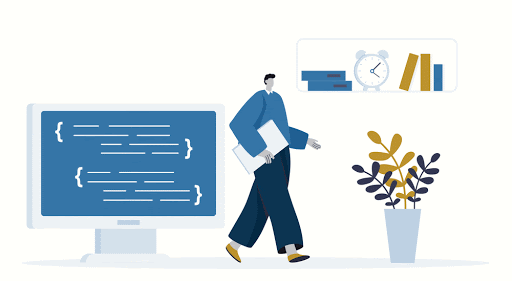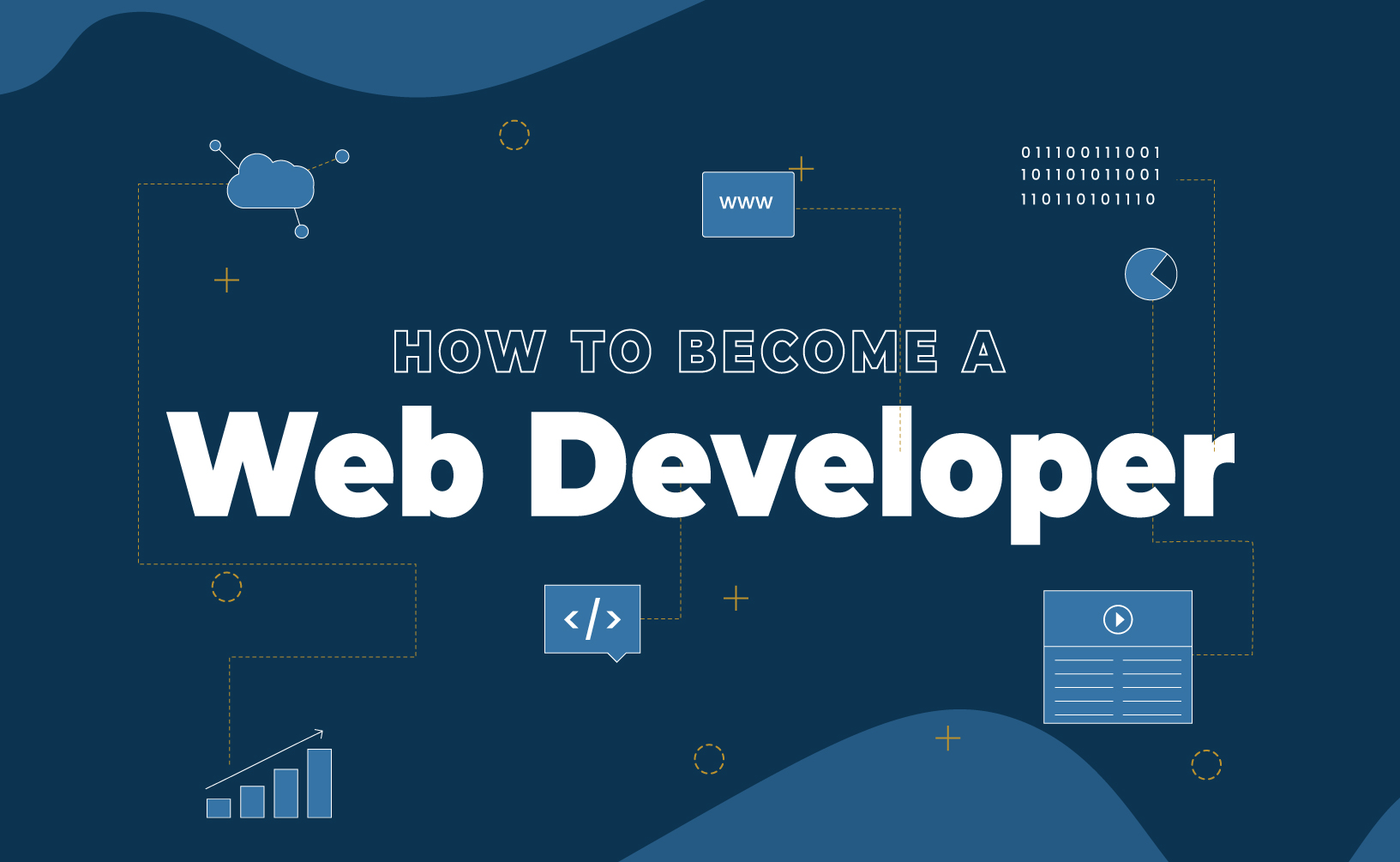In 2020, more businesses and companies went online and remote than any time in human history. Brick and mortar stores became online shops; boardroom meetings became online syncs; and even things as simple as buying groceries were increasingly done online. Behind all of this digital activity are full stack web developers. These tech professionals keep us connected and working in a world that relies on information communication technologies to run.
But what is a full stack web developer, what do they do on an average day, how much do they earn, and how do you become one? We will answer all these questions and more below.
What does a full stack web developer do?
When you look at any website or webpage, what you’re actually looking at is two different things: the visual appearance and visible parts of the website (known as the ‘front end’), and the code behind everything which makes those buttons, webpages, and websites work (known as the ‘back end’). A full stack developer works across both of these ends using the “full stack” of technologies that front and back end engineers each use, to make sure that websites don’t just look great, but that they work perfectly too.
The general daily responsibilities of a full stack web developer include some of the following:
- Work with clients to determine their needs from a website, in terms of both appearance and functionality.
- Plan and design ways to implement those client needs
- Write back end code in languages like Python, Java, PHP, Ruby, and so on, to make the website function.
- Write front end code in HTML, CSS and Javascript to make the site look great.
- Frequently test the code you’ve written to validate the web application against the client’s need
- Monitor, maintain, and make frequent improvements or fixes to the web applications so that it runs smoothly.
How do you start out in becoming a full stack web developer?
Most full stack web developers start by building basic skills in a widely used web development programming language, such as HTML, CSS, or Javascript, and then learn additional technology stacks and languages to enrich their websites with increasing layers of sophistication and functionality. For example, they might learn to use SQL to allow their websites to create and manage databases, they could use React to make their website even more user-friendly, or they could use Angular to create an incredibly mobile-friendly version of their website.

In many cases, a full stack web developer will learn a large ‘stack’ of technologies that allow them to work on both the front and back ends of a website, such as the MERN stack (MongoDB, Expres, Angular.js, and Node.js).
What is the career path of a full stack web developer ?
The power of a full stack developer lies in their rich and varied skill set. It allows them to fulfil a number of roles across the web development space, and even outside it, as they utilise techniques and languages that translate across tech specialisations.

- Front End Developer – These developers are responsible for everything you see on the ‘front end’ of a website, such as its design, layout, buttons, and appearance. This job isn’t just about being a developer, it’s also about having an eye for design, UX, UI, and aesthetic, and brand strategy all in one.

- Back End Developer – In this specialisation, your work is dedicated to making sure the websites buttons, tabs, and boxes actually work. This is done by using code, database management, and a range of tech stacks to ensure there’s functional code on the ‘back end’ of a website to make the ‘front end’ do what it says on its buttons, menus, and headings.

- Full Stack Developer – these developers work with the ‘full stack’ of technologies that are used on the front end and the back end of a website. They create the visual layouts and frames of the website, and also turn them into working web applications that communicate with the user and server, store information, and work properly. Full stack development is both of the above jobs rolled into one.
A full stack developer could even branch out into developer operations, systems engineering for online services, or other tech spaces that involve online and internet communications.
What skills does a full stack web developer need?
Full stack web developers need the basic skills that every other programmer or developer needs to learn, grow, and succeed, but there are a few skills that are particular to this niche.
- An eye for design – an ugly website is a website no one visits. Knowing how to code a webpage is one thing, but knowing how to lay that page out, which colours to use, and how to organise the pages and domains is extremely valuable to the development process.
- Organisation – this isn’t just for laying out a website in a way that’s nice to look at and well constructed. The multi-faceted nature of full stack development (which covers both the front and back end of a website) means you have to manage both ends at one, and make them work with one another.
- Abstract thinking – it’s not just about creating a pretty website that works, but about turning great ideas and creativity into lines of real, working code.
- A rich, multi-faceted skill set – design, copywriting, photography, videography, UI/UX, and programming are all vital in creating beautiful and functional websites that stand out from the rest. The more feathers in your cap the better.
How much does a full stack web developer earn?
According to PayScale, the average annual salary of a software engineer is R299,855.
This pay level depends on various factors, such as the number of years you’ve spent on the job. Here’s what PayScale says the average full stack web developer ’s pay looks like over the course of their career:
- Entry level: R48,000 – R265,000 per year
- Mid career: R84,000 – R487,000 per year
- Experienced: R153,000 – R760,000 per year
- Senior pay: R409,000 – R1,000,000+ per year

That’s just in South Africa; across the world, Web Developer salaries are on the rise. According to Indeed, in the United States web developers can expect to make an average annual salary of $76,271.
The pay for a full stack web developer is difficult to exactly state, because of the wide range of responsibilities that the role entails, but in general it follows a simple rule: the more you do, the better you earn. A full stack developer who does vital work across large sections of the front and back end of a website earns significantly more than a developer who specialises in a single stream.
Best of all, a full stack developer’s skills are highly transferable, making it easy to jump from one specialisation into another (or even into new branches of developer work).
Our 1-on-1 mentored coding bootcamps make becoming a professional full stack web developer faster, cheaper, and more accessible. Not only are our bootcamps affordable, accessible, and made to fit your schedule and learning goals, they’re also completely open to everyone, even if they have no matric certificate or previous coding experience.
And if you’re not sure that full stack web development is for you, can take a look at our other coding bootcamps that teach the skills needed to find jobs in the high paying data science and software engineering fields.
Start your rewarding career in tech today by signing up for your free trial or by chatting to one our friendly and expert admissions consultants.


